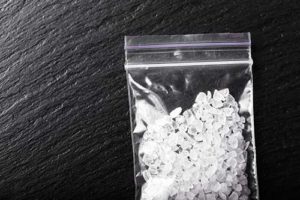Understanding Teenage Methamphetamine Abuse
Methamphetamine (meth) is a very strong, very addictive stimulant drug that affects the central nervous system . Meth use among youth is considered especially tragic because of the severe and often irreversible damage that the drug can cause, even to occasional users. Unlike users of other illicit substances, many meth users experience permanent and substantial cognitive and physical damage that could haunt them for life.
. Meth use among youth is considered especially tragic because of the severe and often irreversible damage that the drug can cause, even to occasional users. Unlike users of other illicit substances, many meth users experience permanent and substantial cognitive and physical damage that could haunt them for life.
At Ascend Healthcare, we want to do our best to redirect your child back towards better mental and physical health through our meth addiction treatment program. Since many children are driven towards drug abuse due to other underlying conditions, it’s important for us to discover the true cause of their acting out. If you think your child may benefit from time in a teen meth abuse treatment program, reach out to us today.
Causes Of Teenage Methamphetamine Abuse
There is no single cause determining why adolescents abuse substances. We know that peer pressure, poor coping skills, and turbulent emotions are contributing factors, but it is especially important to assess what keeps teenagers returning to drug use.
In addition to the desirable euphoric sensation, teens might abuse meth for a variety of other reasons. Most commonly, teenage girls abuse meth as a way to lose weight which contributes to extreme anorexia and other disordered eating conditions. Methamphetamine is also a cheaper alternative to other stimulant drugs such as cocaine — making it much more accessible to a younger market of substance users. Our meth addiction treatment program finds and addresses the underlying concerns that drive your child towards meth in an effort to guide them back to a healthier, happier life journey.
Side Effects of Methamphetamine Abuse
Among other things, meth rots the teeth and can permanently damage blood vessels in the brain. In the long term, the increased heart rate and blood pressure can result in strokes, cardiovascular collapse, and irregular heartbeat as well as liver, kidney, and lung damage. But, the effects of meth are not purely physical. Continual meth abuse also causes memory loss, decreased cognitive ability, and extreme mood swings.
Meth comes in a colorless, odorless, white powder substance that is usually snorted, injected, smoked, or mixed into water and taken orally. Its high is produced by a surge of dopamine, which is a neurotransmitter in the brain associated with pleasure, reward, and motor function. Because the rush of dopamine causes a sense of euphoria, some users find that they no longer feel alive without the drug. Life becomes dull, dreary, and loses all meaning without the constant elation and energy that accompanies meth use.
Signs and Symptoms of Meth Addiction
Are you considering a meth addiction treatment program for your child? Keep track of these signs and symptoms:
- Unusual Sleeping Patterns
- Uncommon Nervous Behavior
- Twitching
- Skin Scratching
- Decreased Appetite
- Weight Loss
- Burn Marks On Fingers Or Mouth
- Lying And Secretive Behavior
- Pinpointed Pupils
It can be difficult to confront your child about drug abuse and discuss getting them help, but Ascend is here for you with a personalized teen meth abuse treatment program. We make your child feel welcome and accepted in our facility and work to educate them and the family system about making better life choices to fulfill their potential.
Meth Addiction Treatment Program at Ascend Healthcare
The team at Ascend has years of experience reaching adolescents struggling with drug abuse issues. Our therapy modalities and custom curriculum for each child reintroduces them to a life that they want to continue living. Through our family therapy program , experiential passion projects, and support from our staff members, we believe your child will find solace and hope in our meth addiction treatment program.
Speak with one of our admissions experts today at 310.388.3713 to discover whether Ascend is the right place for your child.
